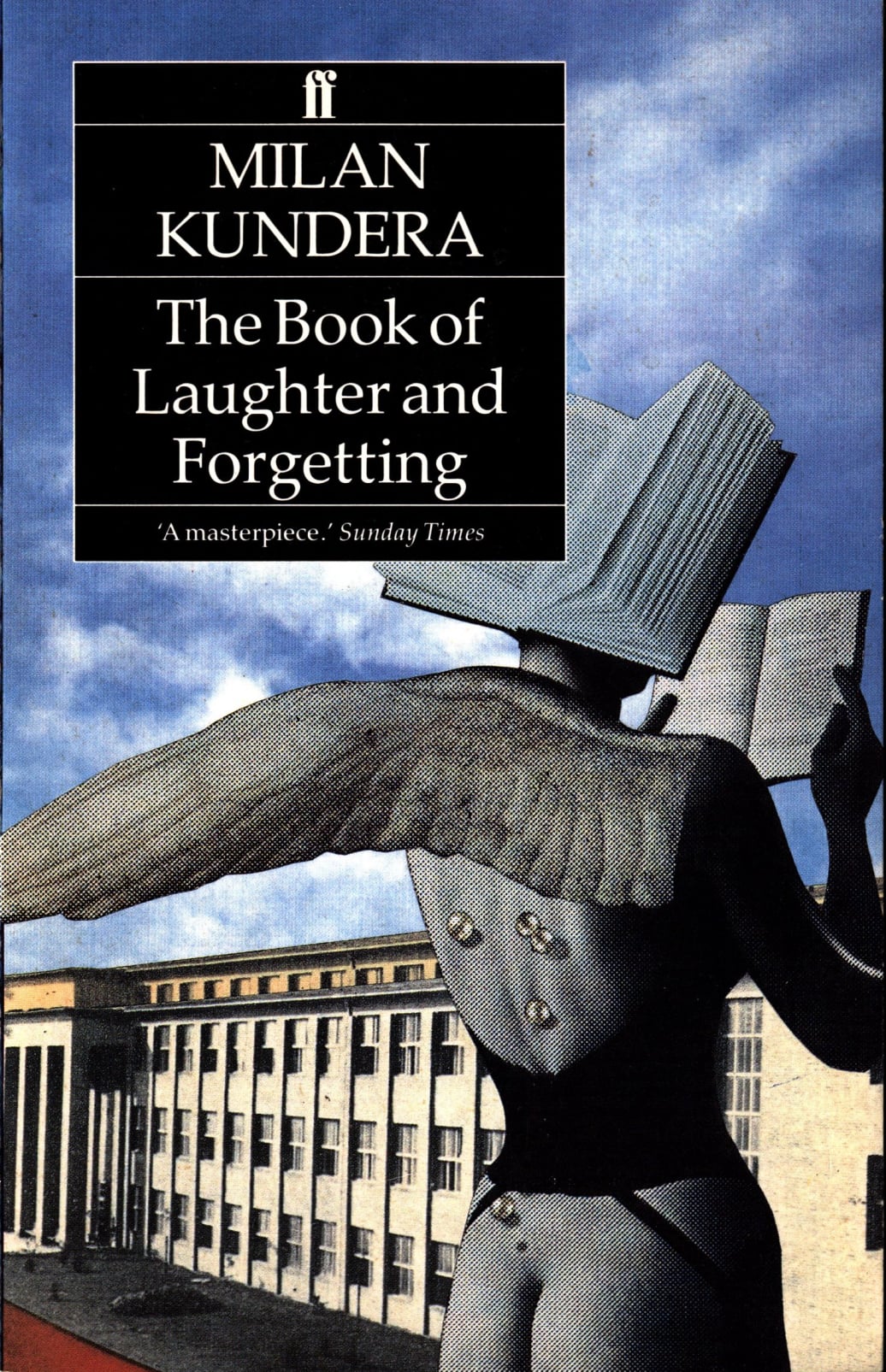
Rich in its stories, characters, and imaginative range, The Book of Laughter and Forgetting is the novel that brought Milan Kundera his first big international success in the late 1970s. Like all his work, it is valuable for far more than its historical implications. In seven wonderfully integrated parts, different aspects of human existence are magnified and reduced, reordered and emphasized, newly examined, analyzed, and experienced.
Faber & Faber, online
Father stopped and looked up at the device the noise was coming from, and I could tell he had something very important to tell me. Concentrating as hard as he could on putting what was on his mind into words, he finally came out with: "The idiocy of music."
What did he mean? Could he possibly have meant to insult music, the love of his life? No, what I think he wanted to tell me was that there is a certain primordial state of music, a state prior to its history, the state before the issue was ever raised, the state before the play of motif and theme was ever conceived or even contemplated. This elementary state of music (music minus thought) reflects the inherent idiocy of human life. It took a monumental effort of heart and mind for music to rise up over this inherent idiocy, and it was this glorious valut arching over centuries of European history that died out at the peak of its flight like a rocket in a fireworks display.
A. A. Knopf, 1980, p. 180
A narrative by an author who does not have the writing talent of Milan Kundera - and some have tried - built on an assumption that does not fit the historical facts, would surely fail. But Kundera has mastered not only the craft, but also the art of writing, which is why The Book of Laughter and Forgetting has become such an important work (…) Kundera is also a master of the art of the essay - when he contemplates laughter or when he talks about the meaning of music with his dying father, one of the leading and most cultivated Czech musicologists. In Kundera’s landscape, one senses the Moravia of his childhood, which still lives in him despite years of increasing integration abroad.
Milan Kundera is a poet of essence.
One admires the tour de force of linking seriousness and nonsense, the high-speed cutting between them, the play element that lets fantasy have it’s head and the intelligence that controls it. The autonomy of such a story tends to put it beyond interpretation.
The Milan Kundera Library is funded by the South Moravian Region and the City of Brno.
© 2024 Moravian Library in Brno